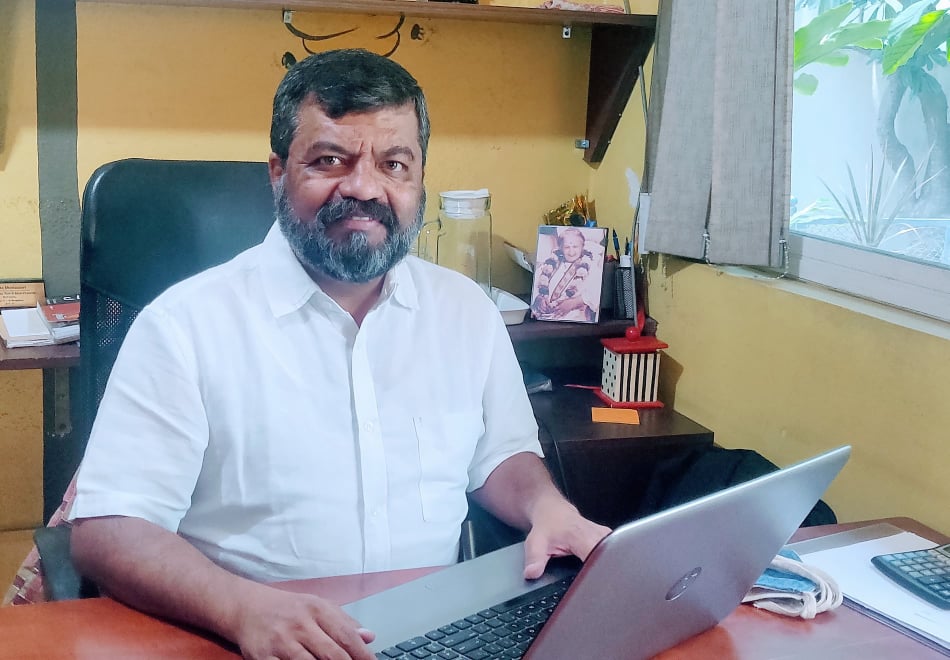
A view on change and opportunity.
Industries and corporates are not alone in the number of challenges they face. Educational institutes continue to face adversity and change with increasing regularity. With a potentially higher cost of change due to the vulnerable nature of the stakeholders.
With the unprecedented Covid 19 situation, these hurdles have been thrown in to stark relief, while also creating a unique new set that institutions have not been equipped to address.
As education has gone online in an effort to reduce learning loss and its drastic impact on students’ futures, the focus has unexpectedly turned more strongly than ever on to the infrastructure and facilities these institutions offer.
Historically, academic institutions emphasized the necessity of the quality of content, syllabus and teaching, and, importantly, on CCTVs and student security, Covid 19 has turned the spotlight on to the quality of resources in the school building. This includes sanitization, previously ignored issues such as restroom safety, and disinfection.
Spotlighting these concerns may impact smaller intuitions, increasing their popularity with parents and creating reassurance that stringent sanitization is not only possible, but strictly adhered to. Another foreseeable long-term change is the re-creation of micro-schooling in larger schools. This entails decreased student-teach ratio, resulting in intimate learning groups within which students and teachers can interact mask-free, thus turning each group into a self-sufficient circle of trust. Smaller school are also likely to see a coming of age, aided in their growing popularity by concerns around children’s health,
Another significant requirement will be that of parent cooperation. Parents will bear equal responsibility in ensuring that the precautions taken for hygiene and safety begin from the child’s home environment and extend until the point their child reaches the school or university. Policy-makers will see the need to consider larger universities as much as smaller schools, ensuring that all formats have a set of regulations and guidelines to make institutions safe for staff and students.
Institutions will have to be driven by passion, confidence and delivery more than ever in the post Covid 19 world. Vision and willingness to relook at education methods and academic information are vital for institutions looking to survive and educate people in these times. This pertains to the evaluation of technology and its potential to enable institutions.
This pertains to the advent of education technology and its new identity as an integral part of education. While books have so far enjoyed an infinitely higher status in the minds of people as the unit of education, changing technology and the mercurial nature of the modern learner calls for a transformed outlook on the possible sources of knowledge.
Educationists will now need to curate and vet content for their students, rather than feed it to them bit by bit. Lectures will diminish in importance, making the flipped classroom of more value to students who come to class already informed, but in need of verification of all the information they have accrued. The job of the educator will be to guide their wards through the shifting landscape of content, tools and domains, ensuring that the foundation remains solid, even as they race ahead even at the pace of technology itself.
It will also be the job of educators to induct learners in to the safe and constructive use of technology in much the same way as they pave the way for classroom learning. The paradigm shift in education is already being faced with the next big conundrum. A greater dependence on online assessment, collaborative tools and documents, and custom technology solutions for different institutions.
There remains huge potential for education technology to contribute to improved teacher training in private, as well as government institutions, validation of degrees and certificates to prevent counterfeit documentation, and policy-change, along with computerized employment history for teachers, ensuring loyalty, quality and accountability.
Technology can be leveraged to form community among institution founders and administration, resulting in a unified body that drives just employment laws, better educational policy and improved delivery, benefitting all stakeholders.
While widespread change may be slow due to schools in semi-urban and rural areas, technology may well inspire a wave that will bring about lasting and beneficial transformation for all concerned.
The educational roadmap is experiencing the most dramatic shift in history, and no one knows what its future will look like. However, as with all change, there is tremendous opportunity for us as educators to deliver even more to our students, accompanying them in to a future filled with potential.
-Pruthvi Banwasi
Secretary - KARNATAKA COUNCIL OF PRE SCHOOLS , Founder of Roots Montessori House of Children